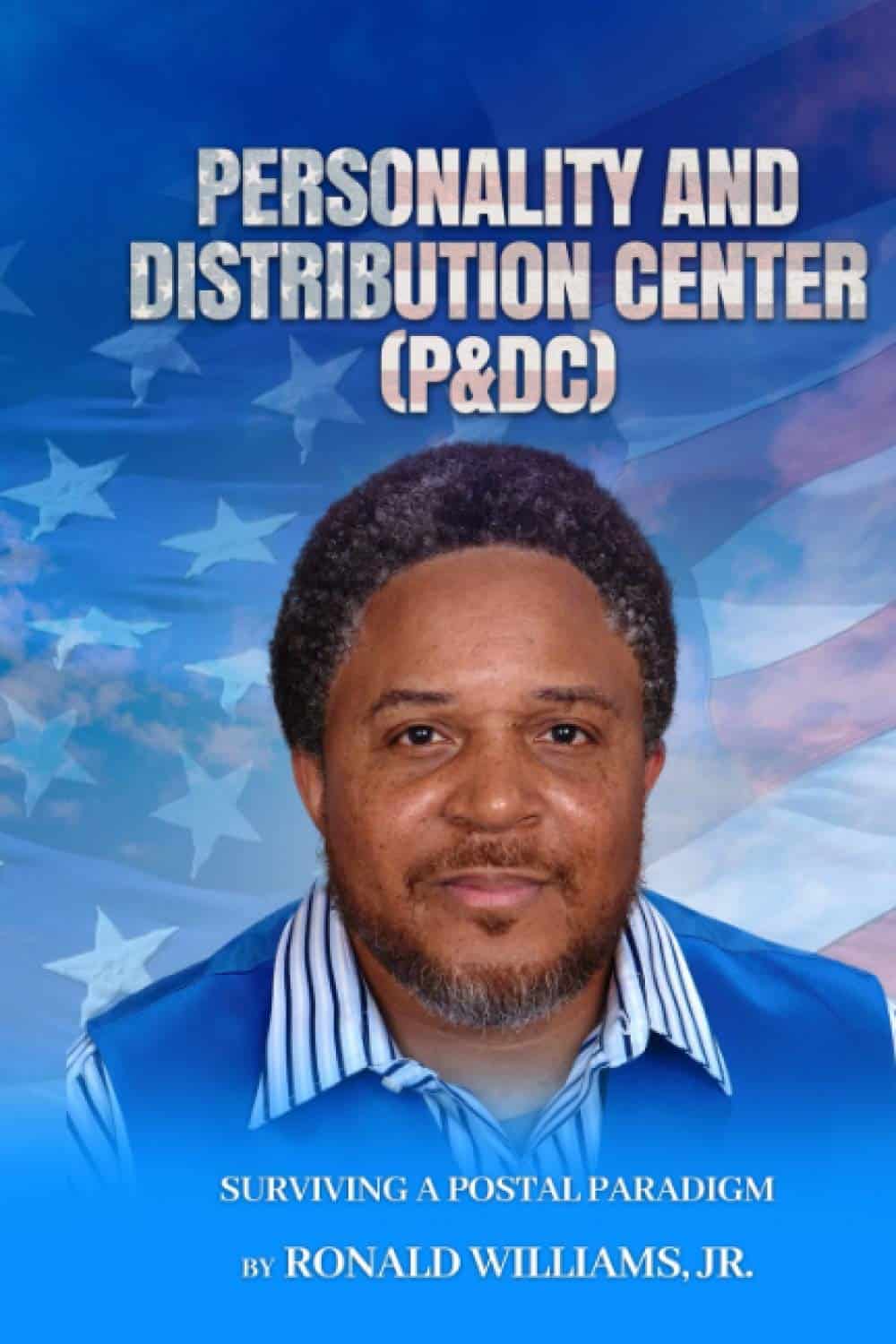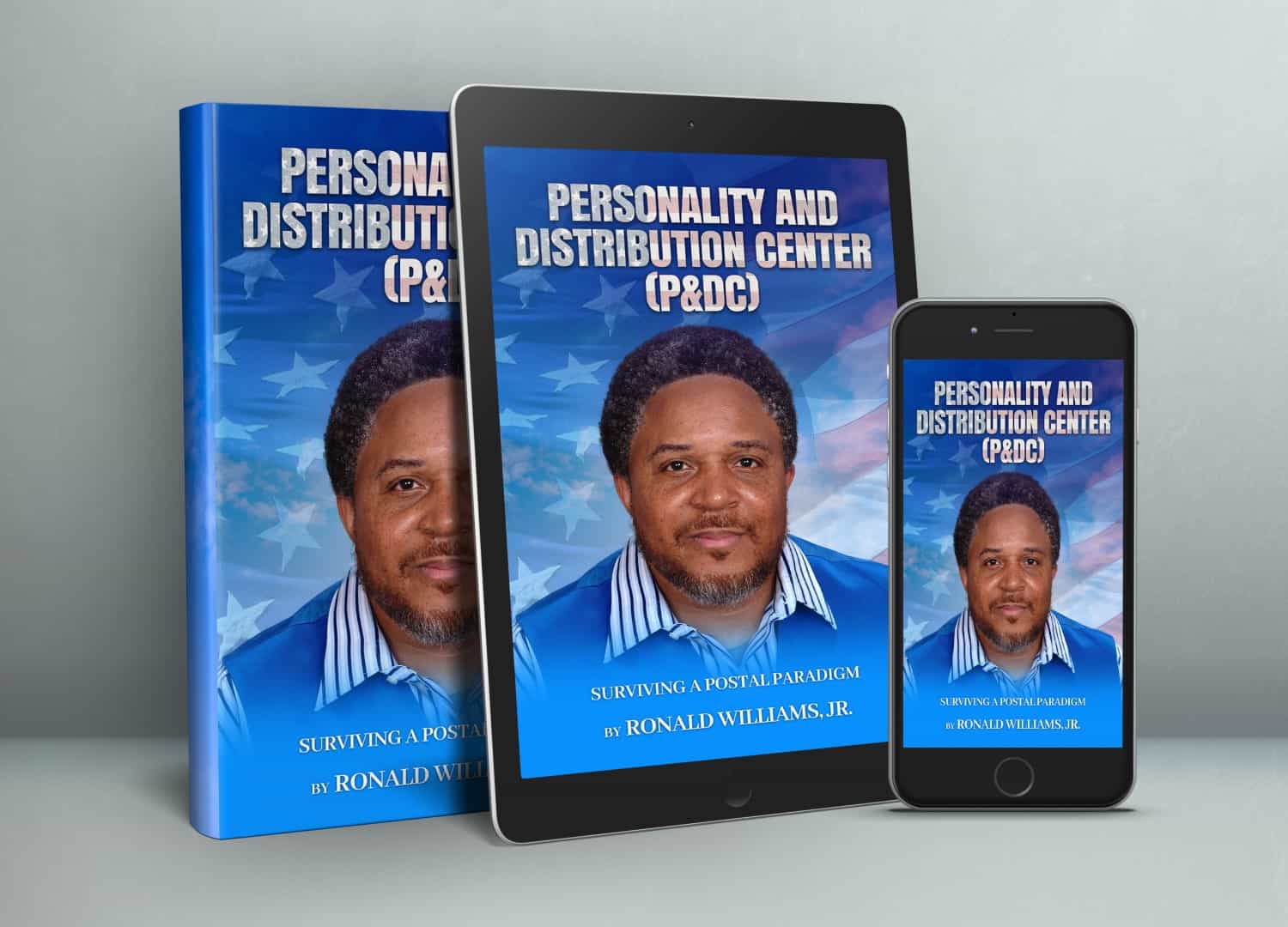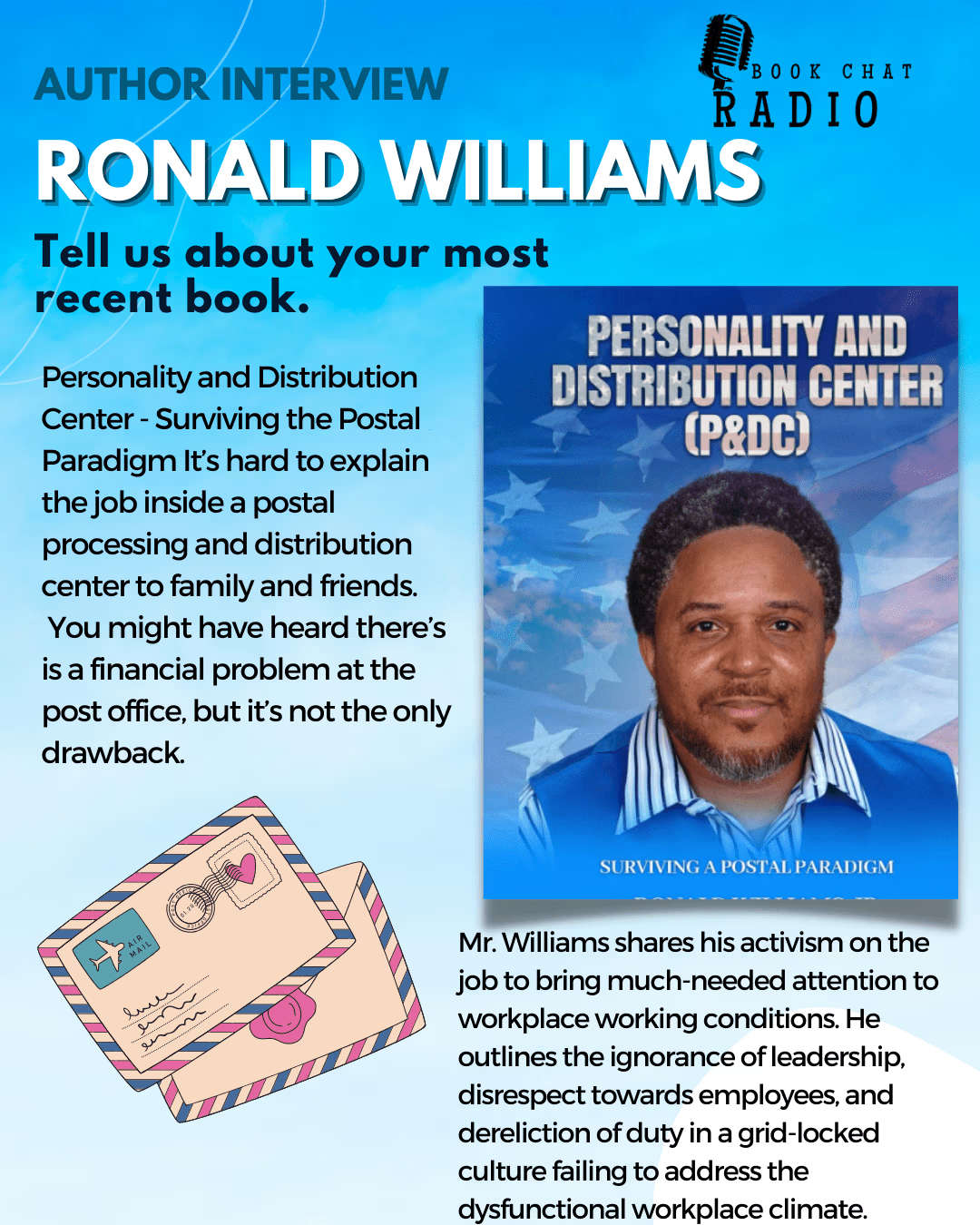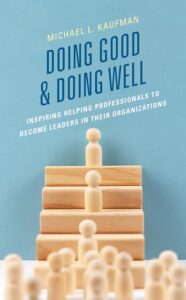Ronald Williams, Jr. brings a wealth of experience and insights to his latest book, “Personality and Distribution Center (P&DC): Surviving the Postal Paradigm.” His understanding of the Postal Service, its history, culture, and adaptability are essential for anyone seeking to understand the organization’s inner workings. His advice for starting a career in the Postal Service is golden, and it can be applied to most careers and life in general. We’re grateful for the opportunity to have interviewed Ronald Williams, Jr. and would highly recommend that anyone interested in this fascinating topic gives his book a read.
Can you tell us briefly about your book, “Personality and Distribution Center (P&DC): Surviving the Postal Paradigm;? What Inspired you to write this book? Make no mistake about it, I loved the work I did at the United States Postal Service (USPS). When I reflect on the business in hindsight I remember an organization where leaders valued mail and numbers over people. The work is essential and job is important because physical mail is considered personal and private, and it makes the postal service a communication superpower. The customers, employees, and business partners have to work together to provide a universal service to everyone in the United States. The job requires people of integrity, sound health, and postal pride in order to be efficient. Unfortunately, through processing, distribution, and on the way to delivering the mail I often felt like I had to tip toe carefully and quietly if I wanted to complete a successful career.
Technology has played a significant role in transforming the postal industry. How do you explore the relationship between technology and human workers in your book? Are there any insights on how to adapt to technological advancements? From brick and mortar to click and order. USPS like all businesses must constantly remarket postal products and services for the 21st century. Looking at society today we often see changes in the way customer service jobs are performed, and we see the move from manual labor jobs to automation discounting the need for human interaction. The pandemic probably accelerated a lot of corporate thoughts about humans being replaced by automation of the past few years. As the government continues to offer incentives and tax breaks for automation and electrification, we can probably expect to see a faster deployment of new technology and the loss of jobs. If that happens hopefully management will start downsizing by cutting the layers of management first.
From a positive perspective technology can free people from doing the boring manual and repetitive jobs, to take on more stimulating tasks. Sometimes technological change can create more jobs. A machine run into the ground might become too expensive to maintain and get reverted to a manual operation (It happened at USPS). A processing center can go from having no automated package sorter to installing a large sorting machine requiring lots of jobs (It happens at USPS). Through years of advancing technology, the post office went from 742,000 employees (1969) down to around 640,000 in 2021, a difference of only 100,000 jobs over 52 years. New technology is a chance to train employees for new opportunities inside the company.
For union workers, unions will be likely be thinking ahead about technology and the potential loss of jobs. The jobs without union workers might be left behind. One thing that is certain is that all technology must be backed by a strong human element. On the downside technology is usually expensive to purchase and install. Organizations need the right infrastructure, and inadequate mechanical and technical support can slow progress. Example: Maintaining a goal of processing 200,000 pieces of mail per hour with mechanical errors, equipment and personnel shortages can negatively impact the business. Technology still requires a backup plan, frequent training, and regular retraining. I explore the relationship between technology and human workers in this book in the form of personally requesting an Inspector General investigation that found that my complaint was submitted with merit.
How does your professional background and experience inform the ideas and concepts presented in your book? How have you witnessed the changes in the postal industry firsthand? The post office is a federal job. In 1944 President Roosevelt signed the Veterans Preference Act.
“The federal government should take the lead in assuring that those who are in the armed services that when they return special consideration will be given to them in their efforts to obtain employment as provided by a grateful nation.” As a result, USPS offers 5 or 10-point preference veteran’s advantage on career exams. It’s one of the largest employers of veterans in the country. The Postal Service employs around 100,00 veterans and family members. The agency has also issued more than 140 stamps honoring military service.
USPS says they value leadership, integrity, reliability and skills veterans bring to the organization. I brought a professional military background and experience to the organization. On many instances I often wondered if the leaders really cared about veteran experience beyond lip service. I was encouraged to actively engage management and push for better recognition and memorial which are illustrated through photos in my book.
How do you define a “surviving mindset” within the context of a distribution center? What are some characteristics or habits that individuals need to develop to cultivate this mindset? I hope that the U.S. Postal Service will restructure the business to meet the needs of every household and business in America and become a leader in the era of electronic diversion. It must engage and challenge the smart employees they hire to perform extraordinary task of delivering the mail six days a week. The autocratic management style used in today’s workforce breeds a very disruptive environment that does not foster cooperation among team members. I like USPS products and services. I like surface visibility, priority mail, flat rate boxes, PO Boxes, and informed delivery. And most importantly I enjoyed working with my coworkers to process the mail. I wish more employees would actually stand up for the working conditions that they often complain about.
A surviving mindset in the distribution center requires a joint commitment from labor, and management. Individuals must stand up and be the change they want to see. Individuals must embrace the union as a tool to achieve better working conditions. Frederick Douglas once said, “if there is no struggle there is not progress,” and “power concedes nothing without a demand.” It is mail handler muscle and sweat that makes the Postal Service the delivery icon it is today. The union must organize or it will fail. Sometimes individual rank and file members pressure union officials as if they are an extension of management. Many individuals are often afraid to write statements to process a grievance because they fear retaliation from management, and that lack of solidarity puts extra pressure on shop stewards. Union activity is legal and protected by the National Labor Relations Act (NLRA) and individuals need to understand that.
Labor unions have a responsibility to challenge working conditions that impact employment. Post office labor unions need to become much more than contracts are us, a dues collector, and a grievance machine. The labor leader of the 21st Century has to be able to shift into a high gear of cooperation, and mutual interest. The union is a business too, with extensive resources, product lines, and massive organizations across the world. Postal management must figure out a way to make the union a partner in making needed changes, and persuading them that constructive change and improved performance are in their own self interests. I saw a lot of giggling and laughing with management union officials, and when I needed support the union wasn’t there for me. They were the type of stewards that didn’t know what was happening, and I wanted to make things happen. I ran for elected office to make a difference and to change the situation for the union.
Personality and Distribution Center – Surviving the Postal Paradigm
It’s hard to explain the job inside a postal processing and distribution center to family and friends. You might have heard there’s is a financial problem at the post office, but it’s not the only drawback. Mr. Williams shares his activism on the job to bring much-needed attention to workplace working conditions. He outlines the ignorance of leadership, disrespect towards employees, and dereliction of duty in a grid-locked culture failing to address the dysfunctional workplace climate. BUY NOW ON AMAZON
Meet the Author
Ronald Williams, Jr. is a military veteran and retired postal employee who loved his job at USPS. He found out over his career that moral courage exhibited by postal leadership was a rare commodity. He clocked-in to work every day on a regular schedule energized to process and deliver America’s mail. Always at the workroom table with more than a fork but often disappointed about what was on the workplace menu. Read his book to find out what he experienced, the challenges at the Postal Service, and some solutions. This is Ronald’s third and final book about life inside the mail giant.
U.S. Mail, Mail Handlers, USPS, United States Postal Service, Postal Unions, Processing and Delivery Center (P&DC) Going Postal, Postal Employee, Postal Management, NPMHU, NALC, NAPS, NAPUS, NRLCA, Post Office, Postmaster General, Mailbox, LiteBlue
Finally, where can readers find your book, “Personality and Distribution Center (P&DC): Surviving the Postal Paradigm,” and connect with you to learn more about your work? Readers can find my book on amazon.com in e-book, paperback, and hardcover. If interested readers can connect with me at [email protected].










